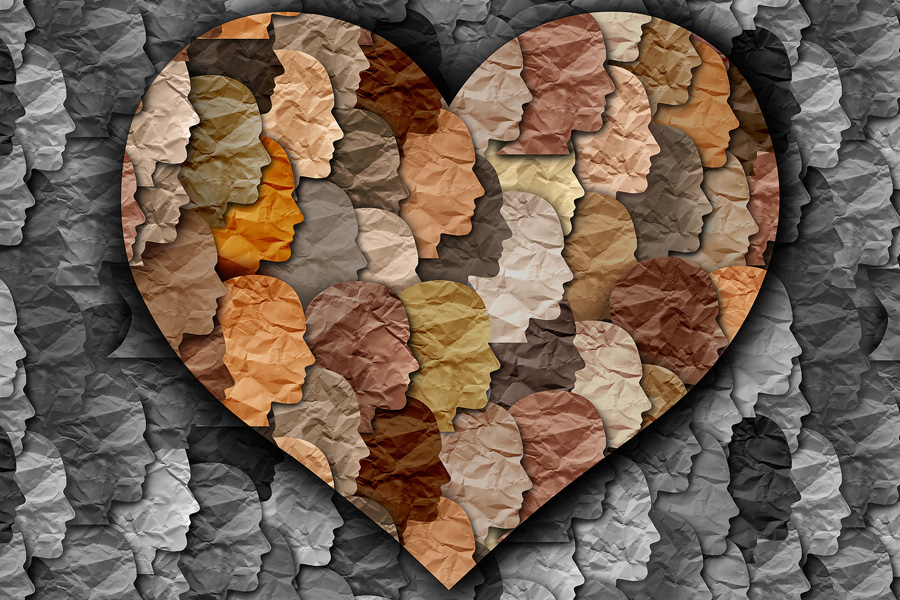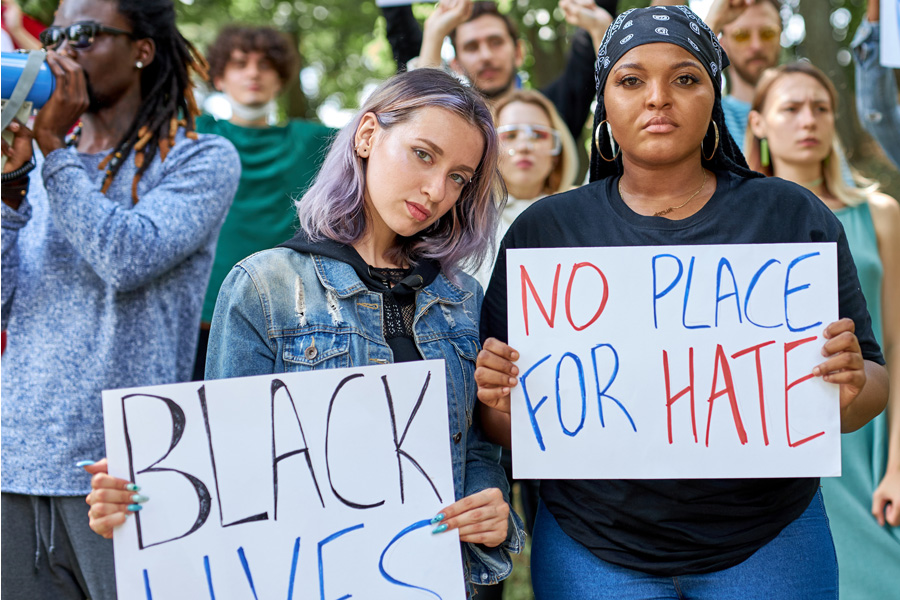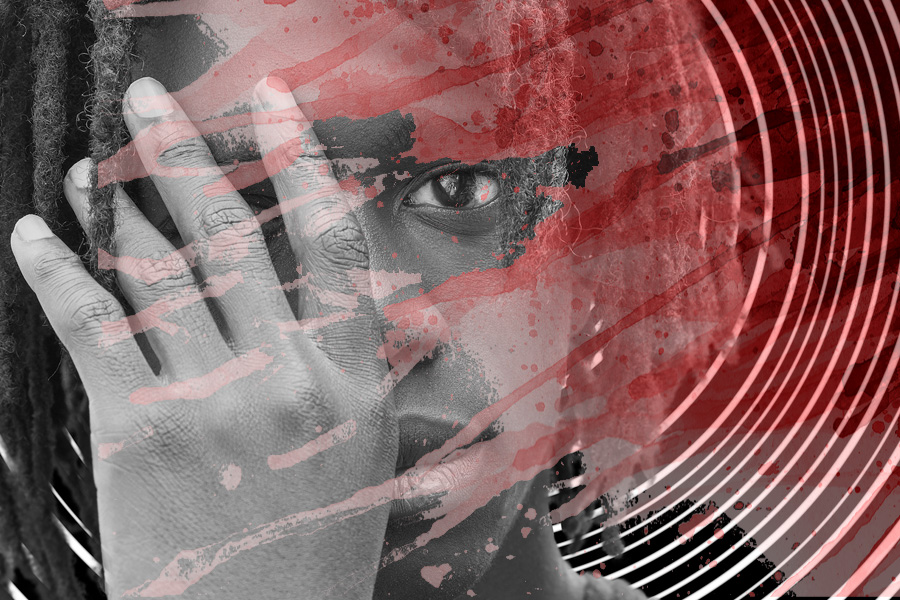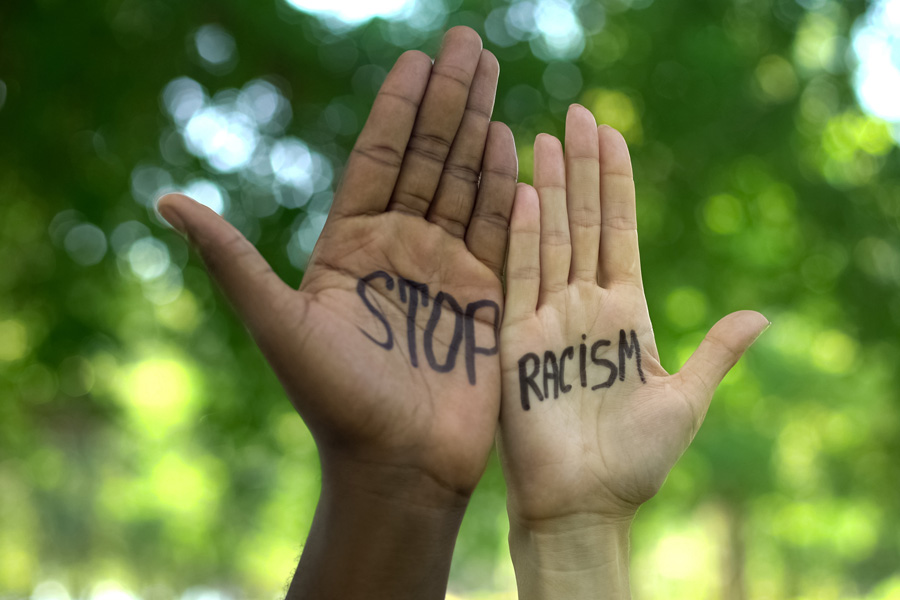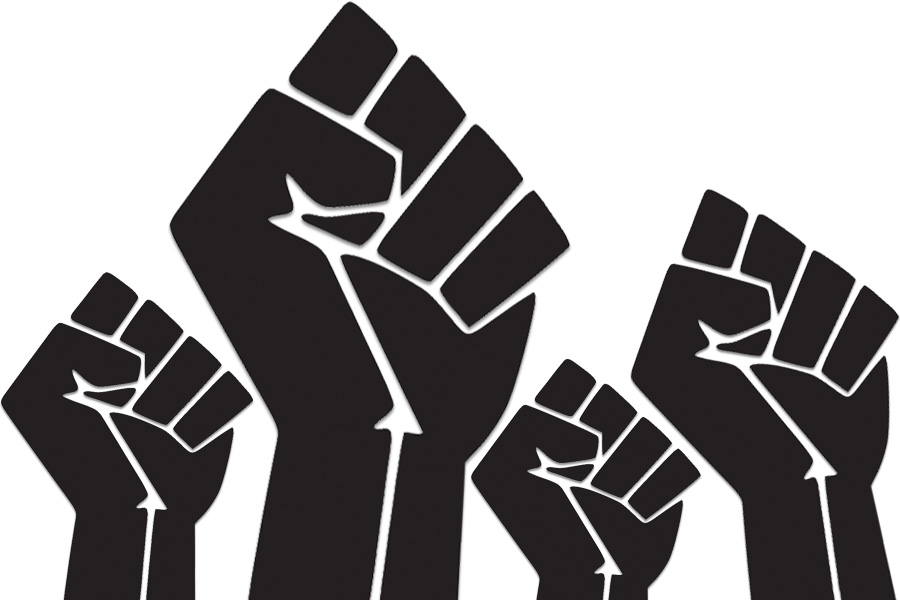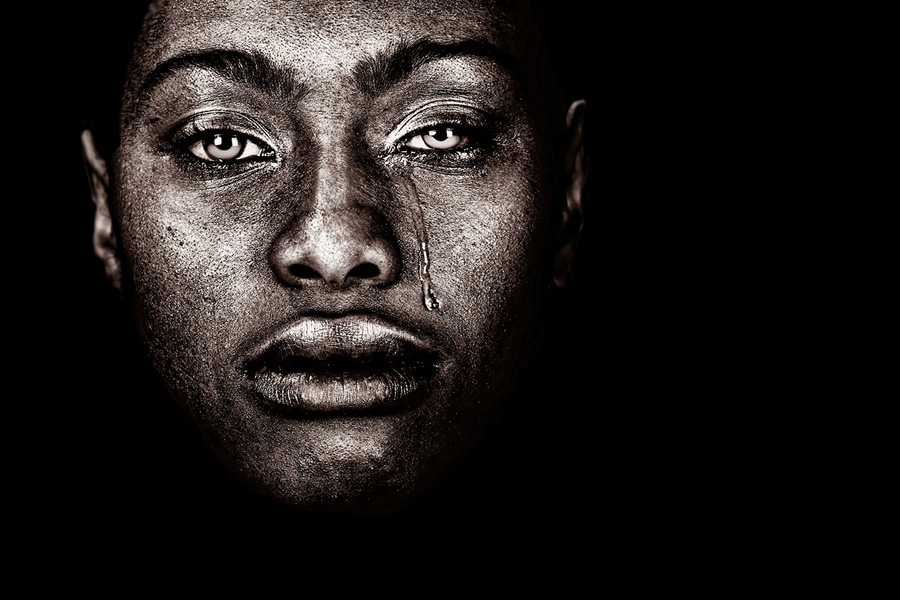Multiplicity Commons No. 9
This Doorbell Is a Protest Anthem
by Fareh Malik
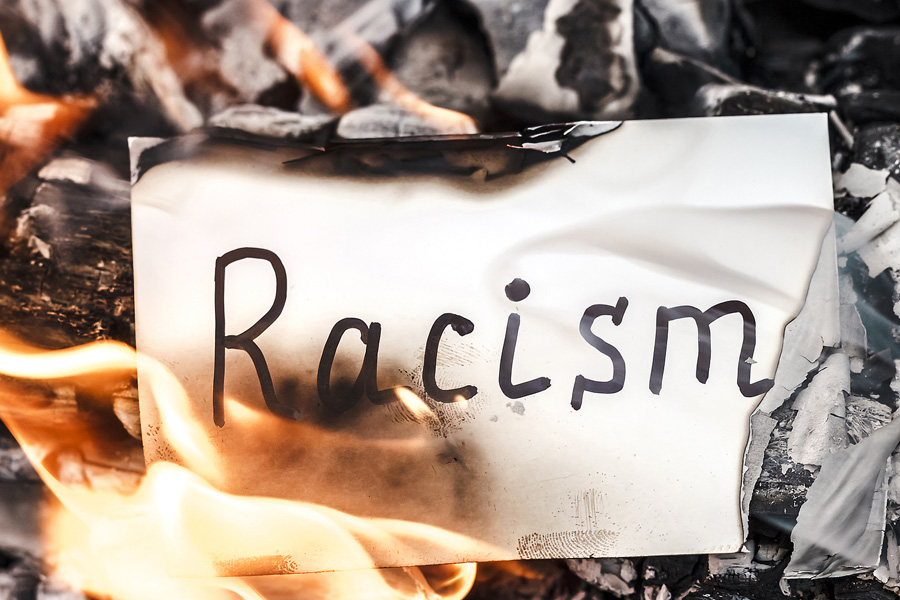
Don’t the windchimes sound like
shattering windows?
This fireplace is
a car ablaze in the street,
every wall hanging, a picket sign.
The carpet is still wet from
hoses and blood,
K-9 slobber and tear gas, incense, condensation.
You ask them,
When did this stop being your home?
But
was it ever yours?
I am “of color,” as they say, not Black.
I don’t know what it means to be Black today.
I do know my friends’ fears shouldn’t be
laid in caskets
with their brothers and sisters.
Brothers and sisters who marched
through the hallways and cities they built.
I know that weak knees make it hard to stand up when
we’ve had the comfort of sitting.
I know we lay our heads in shelters that stand
a million reparation cheques tall,
Slavery sweat pours forth from our taps.
I know
you have been left standing at the gate
for far, far too long.
Go, my friends.
Go give them something
that they can’t ignore.
About the Writer
Fareh Malik is an emerging spoken word poet and BIPOC writer whose work explores the intersection of mental health and social racialization. He has been published in several anthologies and literary journals. This piece will be included in Fareh’s forthcoming book, Streams That Lead Somewhere.
